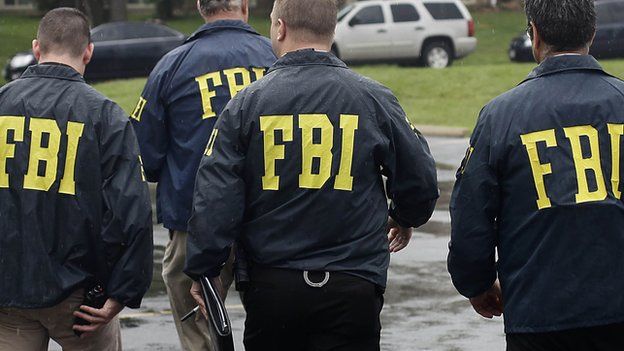FBI national security letter details revealed by court
- Published

A court ruling has shed light on the content of the thousands of secretive FBI national security letters sent to internet companies every year.
The court papers show the letters can demand the browsing and online purchase histories and IP and email addresses of customers the FBI is investigating.
The FBI has not responded to a request for comment from BBC News.
US district judge Victor Marrero, sitting in New York, ruled the content of a 2004 letter should be made public.
Its recipient, Nicholas Merrill, the founder of the now-defunct Calyx Internet Access company, took legal action against the US attorney general and the FBI.
And after an 11-year legal battle, Monday's ruling revealed the FBI had requested access to "records relating to merchandise orders/shipping information", as well as browsing information and any email addresses and online screen names associated with the person they were investigating.
Gathering information
The letter also asked for the target's "DSL account information", "Internet Protocol (IP) address" and "day/evening telephone numbers".
The government had argued revealing the letter's content would give too much information to suspects and cause them to change their behaviour.
But the judge ruled there was no "good reason" to keep it secret.
After the ruling, Mr Merrill said: "The public deserves to know how the government is gathering information without warrants on Americans."
Gagging order
The frequency and breadth of national security letters, which were introduced in the 1970s, expanded under the USA Patriot Act, which was passed shortly after the 11 September 2001 attacks.
The letters are usually accompanied by an open-ended gagging order that bars companies from disclosing their contents.
Last year, the US government announced it would permit internet companies to disclose more about the number of national security letters they received.
But they can still only provide a range, such as between nought and 999 requests or between 1,000 and 1,999.
And Twitter has brought legal action seeking the ability to publish more details in its semi-annual transparency reports.
- Published25 November 2015
- Published26 September 2014
- Published12 November 2015